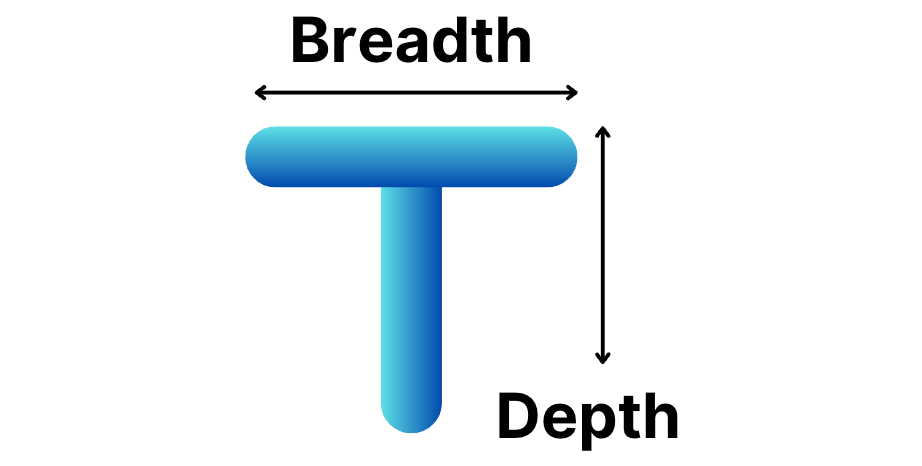How To Specialize In Data Science / Machine Learning
Is it better to be a generalist or specialist?

Eventually, in your data science career, you’ll be asked, “What do you want to specialise in?”
It’s quite a daunting question, and knowing what’s best for you is hard to say the least.
So, in this article, I will explain why you should specialise, which one is right for you, and how to start.
Why should you specialise?
In my opinion, you should specialise, but there is no need to rush into this decision.
Spend your initial years, like 2–3, learning all the data science and machine learning fundamentals. The things you should cover are:
- Basic statistics
- Linear algebra
- Calculus
- Linear and logistic regression
- Random forests
- Gradient boosted trees
- Neural networks
- Support vector machines
- Modelling best practices: cross-validation, hyperparameter tuning, etc.
- Writing high-quality Python and SQL
This list is non-exhaustive, but it’s a good place to start. It will take a couple of years to fully understand everything.
Some may think that’s a long time, but careers are long. If you start as a data scientist in your 20s, you could potentially have four decades working as a data scientist. A couple of years is nothing on that horizon.
So, start with the basics and essentially become a generalist. You will then be able to solve most data science and machine learning problems, but you are not necessarily a deep expert in one particular field, which is totally fine at this point.
After you have nailed all your fundamentals and have a sound footing, it’s time to decide where you want your expertise to lie in.
The specialist vs. generalist debate is years old now, and there are pros and cons to both.
Generalist
Pros
- Better for the management track.
- More job opportunities.
- Wide variety of work and learning.
- Stick closer to the business side.
Cons
- Less compensation as not an expert in any one area.
- Hard to become an IC if that’s something you want to achieve.
- Harder to get into a research based position.
Specialist
Pros
- Deep expertise could be seen as a higher value.
- Can go down both IC and manager paths.
- Work in an area you really enjoy.
Cons
- Your expertise may become irrelevant in the future.
- May have limited opportunities compared to a generalist.
I think it’s better to be a specialist because it’s easier to go from a specialist to a generalist than vice versa, and you are likely to be compensated more.
However, I don’t think you should be an expert in one niche area. I recommend having T-shaped skills where you know the fundamentals very well and know roughly three areas to a pretty good depth.

This is kind of the best of both worlds and allows you to be more flexible in the job market. A lot of this assumes you are working in industry. If you want to do research, then it’s probably better to be a deep subject matter expert in a single area.
I also think that naturally over your career you will start to specialise anyway as you spend more time at a company working on similar problems. Being a pure generalist is quite hard to achieve.
Where to specialise?
So, we have established that it is probably better to specialise in your data science career, but in a few areas instead of one to hedge yourself against any market shocks that may happen.
Now, there are different ways to specialise both in your technical domain and the industry or business area you want to be in.
Below is a non-exhaustive list of many technical ways you could specialise or specialise in:
- Natural Language Processing (NLP) and LLMs
- Computer Vision
- Reinforcement Learning
- Time Series Analysis and Forecasting
- Anomaly Detection
- Recommendation Systems
- Speech Recognition and Processing
- Optimisation
- Quantitative Analysis
- Deep Learning
- Bioinformatics
- Econometrics
- Geospatial Analysis
- Customer Analytics
- Model deployment (MLE)
- Data flow and engineering
There is a cross-over within fields like deep learning with NLP and computer vision or optimisation and forecasting. I recommend having 2 to 3 that you know pretty well, or at least more than the average data scientist.
Many of these technical specialisms are kind of at the mercy of the industry you work in. For example, you can only really do bioinformatics at a health-based company or geospatial analysis at a geography-based company.
With this in mind, there are specific industries and business areas that you can also specialise in.
- Banking and Finance
- Insurance
- Supply Chain
- Marketing
- Consultancy
- Cybersecurity
- Fintech
- Healthcare
- Research
- Oil and Gas
- E-commerce
- Trading
- Sales
Again, this is a non-exhaustive list, but it should give an indication of the various industries you could specialise in. Working in a similar domain for a long time can help you better understand the business side and how to solve certain problems in that industry.
Naturally, you will learn the main types of problems certain businesses try to solve and optimise for, making that knowledge transferrable to other companies in the same sector.
You will see companies saying that having experience in X sector is useful or desirable in many job descriptions. That’s because you will already know how the business operates, making it easier to start delivering value when you join.
As I said above, specific industries naturally lend themselves to technical disciplines. I think you should consider your interests in both the business and technical sense and decide what appeals to you the most.
Pick three technical areas and three business domains and see if there is an obvious overlap. If there is, then that’s what you should specialise in!
How to specialise?
The next question is, how do you go about specialising? I feel like anything, it is relatively easy to understand but hard to do. Let’s break it down per section.
Technical
You can study technical subjects in your spare time. Most of the above mentioned specialisms probably have detailed textbooks, online courses and videos that you can check out.
I would stress that you don’t need to know everything about the field, just enough that you can get an entry-level role. This varies greatly, but generally, showing interest and a reasonable understanding is enough at the beginning.
After you have learned the material, I would start building a portfolio for this technical area to show you are serious about pursuing it. This will teach you a lot and help when you apply for jobs in these domains.
Another option, if you currently work as a data scientist, is to ask your line manager if you can move over to or work on a project with a team that does this technical skill you want to learn. You will be surprised at how easy this is and how accommodating companies and line managers can be.
Industry
This one is a bit harder because to really get experience in a certain business area, you need to have a job in that field. So, my best advice is to apply for jobs in the area you want to work in (stating the obvious I know).
As I said earlier, industry and technical skills overlap, so your portfolio should naturally help you target specific industries you can show to prospective employers.
If it doesn’t, then do projects where the business problem is the industry you want to be in. For example, fraud detection for financial payments, forecasting demand for a supply chain or applying LLMs for e-commerce complaints.
I recommend having a Google, looking at job descriptions, or even reaching out to someone working in your desired business area and seeing what problems they work/solve. Then, you can build your portfolio using this information to make it highly related.
You can also do some reading on the side. For example, if you want to get into banking or finance, read the Financial Times; if you want to get into insurance, read the Insurance Insider or something like that.
You essentially want to align your learning and side work with your target industry, which shouldn’t be too difficult to do.
Summary & Further Thoughts
Specialising in data science and machine learning can be difficult, and you don’t want to make the wrong decision. You don’t want to invest much time in one area and later realise you don’t like it. However, hopefully, the process I discussed here can help clarify your specialisms, and if you make a mistake, don’t worry! You can always pivot later.
Another Thing!
I have a free newsletter, Dishing the Data, where I share weekly tips and advice as a practising data scientist. Plus, when you subscribe, you will get my FREE data science resume and a short PDF AI roadmap!
Dishing The Data | Egor Howell | Substack
Connect With Me!
- LinkedIn or Instagram.
- My YouTube Channel to learn technical data science and machine learning concepts!
- 👉 Book a 1:1 mentoring call
How To Specialize In Data Science / Machine Learning was originally published in Towards Data Science on Medium, where people are continuing the conversation by highlighting and responding to this story.
from Datascience in Towards Data Science on Medium https://ift.tt/ok9ARFr
via IFTTT




